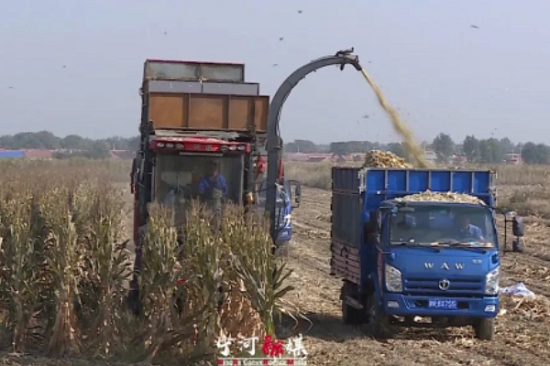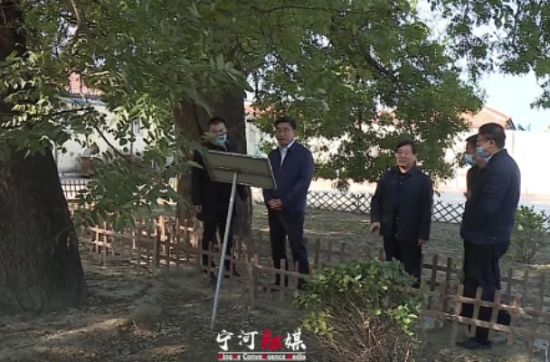On October 12, Bai Fengxiang, secretary of the CPC Ninghe District Committee, led a team to the villages of Ninghe town and Banqiao town to inspect the harvest, planting work, and food security.

Farmland in Ninghe [Photo/tjnh.gov.cn]
Bai and the delegation team came to Daxin village and Xiao Yuehe village in Ninghe town to investigate the harvest status of corn and rice. Ninghe town has been insisting on ecological agricultural development as its basis, cooperating with the Yuehe Xiaozhan Rice (Tianjin) Industry Development Company to establish a rice planting demonstration park with an area of 10,000 mu. It focuses on the cultivation of high-quality rice and supports catering services, leisure and entertainment projects, in a bid to build a new project that integrates agriculture, culture and tourism in the region.
Bai said that Ninghe district would continue to focus on ensuring food security and steadily increase its grain production capacity. Each village and town should dig into their respective resource advantages of water networks and fertile lands, as well as cultural advantages to promote the deep integration of planting, leisure tourism, folk culture and other industries, which will contribute to the development and strengthening of the collective economy and expand the channels by which farmers can increase their income.

Bai and the team visit the village to investigate the vegetable production status [Photo/tjnh.gov.cn]
Bai and the team also visited other villages in Banqiao town to investigate vegetable greenhouse production and bed-and-breakfast business operations. Among them, Wangshizhuang village started its agricultural construction in August 2021, and now has 10 unique vegetable greenhouses with a total area of 70 mu. The annual output can reach 25 tons, with an annual income of 400,000 yuan (about $56,000).
Bai Fengxiang pointed out that the government should adhere to green development as a guide to rural revitalization, and should combine existing characteristic resources to cultivate characteristic agricultural products in the improvement of the rural environment, so as to allow farmers to become the participants, constructors, and beneficiaries of the improvement of the rural residential environment.





